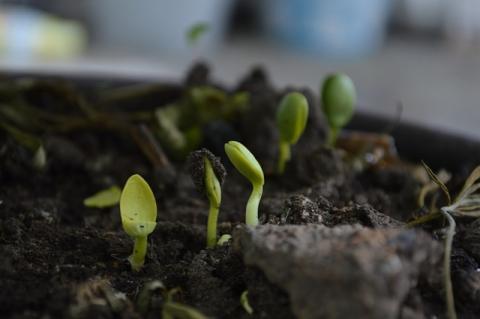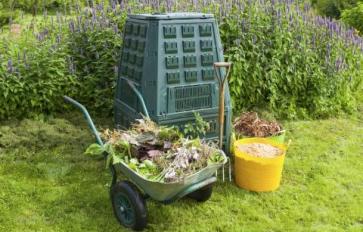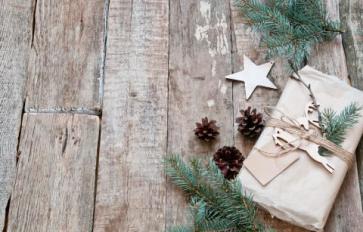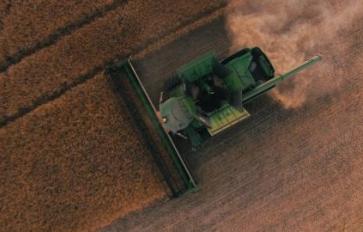
More and more people are trying to live life as organically as possible – and the sentiment applies to more than just the food that’s consumed. When growing your own food, it is possible to be successful even without the use of chemical-filled fertilizers and chemical bug sprays. Chemical products are harmful to our body, the environment, and all of the inhabitants upon Unci Maka - Grandmother Earth.
Our garden beds like to have certain nutrients in order to support the life they feed. You need healthy soil to grow healthy plants! There are three main nutrients that stand out a little more than the rest:
- Nitrogen: Helps support green growth in the garden.
- Phosphorus: Helps plants grow healthy and strong.
- Potassium: Helps plants create sugars and proteins necessary to help the plants thrive.
Natural Fertilizers
- Kelp: I know we don’t all live near the ocean, but believe it or not you can find kelp at many online and brick and mortar businesses. Kelp is full of potassium and nitrogen. It stimulates soil development and enables plants and crops to develop a higher tolerance for extreme temperatures such as ice or prolonged periods of direct sunlight.
- Cow Manure: Most manure is really good for the garden. Cow manure is rich in nutrients that feed plants. Some manure such as cow manure and chicken manure is considered to be “hot” which basically means if you place it directly into a garden with plants growing it will burn them up. It is important that it go through a composting cycle before distributing.
- Alfalfa Meal: Alfalfa meal is packed with nitrogen, potassium, and phosphorus, which meets the fertilizer criteria. It improves the quality of the soil and enables the production of more nutrients for plants to feed on, which in turn increases the plant’s growth over time.
- Limestone: This sedimentary rock in a powdered form is wonderful in the garden. It provides calcium to help the overall growth of plants and magnesium for strong and healthy plants. Before using limestone it is important to test the solid acidity levels because you may not need any extra calcium.
- Chicken Manure: Just like with cow manure, chicken manure should not be placed directly in the garden without first going through a cycle of composting because it is hot. It is believed that the manure from chickens has the most nitrogen, potassium, phosphorus, and other nutrients such as calcium and magnesium. It is the bee’s knees when it comes to fertilizer -- as long as it is composted first.
- Rabbit Manure: Rabbit manure is a “cold” manure which means it can be put into and on the gardens without first being composted. It is loaded with the three main nutrients necessary for a healthy garden. It can have higher levels of nitrogen, phosphorus, and potassium than some manure.
- Eggshells: Eggshells provide the garden with calcium similar to that found in limestone. You can make an egg shell tea or powdered eggshells. To make the tea, fill a bucket with enough water to soak the eggshells (you can add as many as you like). The tea has to steep for a few days. After a few days, add a cup of the eggshell tea to a gallon of water and water the garden. You can use about a gallon per plant. The powder can be made by allowing the eggshells to dry then tossing them into a blender or grinder and pulsing until it is a powder. This will provide a slower release of calcium than the tea.
These seven natural fertilizers can save you time, money, your health, and the health of the environment. There are so many natural fertilizers available so I narrowed it down to seven I have worked with directly. (For more ideas on natural fertilizers, check out this article.)
If you don’t raise your own farm animals and choose to go to another farm to get some maure, it’s always good to inquire about the animal’s diet and as to whether they are fed organically or not. I hope this article has brought something useful to your mind, as well as, something helpful to you and your garden. Happy Planting!








